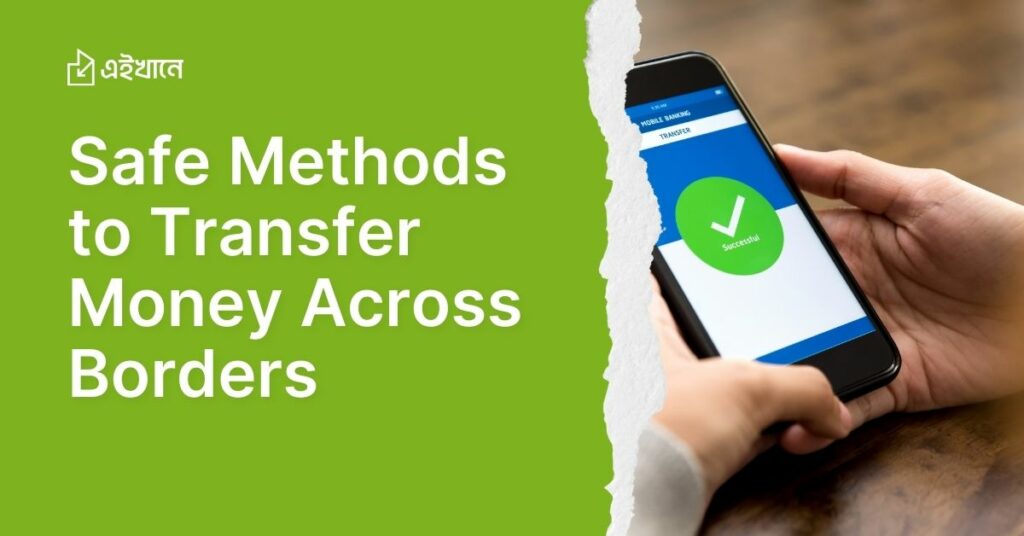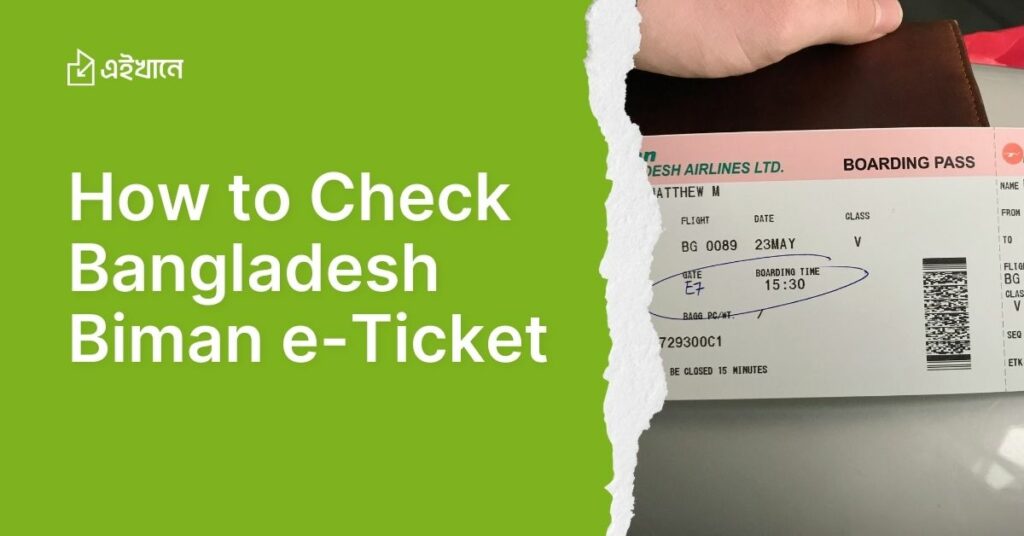Top 5 Secure Money Transfer Services for UK-Bangladesh Remittances
1. Wise (formerly TransferWise)
Wise is a popular money transfer service that allows users to send money between the UK and Bangladesh with competitive exchange rates and low fees. Their platform is known for transparency, ensuring that you know exactly how much will be received on the other end. Transfers are fast, often taking just a business day to complete, and can be tracked in real-time.
2. Xoom
Xoom, a service offered by PayPal, is another highly secure option for transferring money internationally. It provides instant money transfers to most banks in Bangladesh and offers options like cash pick-up. As part of PayPal, Xoom comes with the added benefit of security measures, such as encryption and fraud monitoring.
3. Remitly
Remitly is designed specifically for remittances and offers specialized services for those sending money from the UK to Bangladesh. One of its standout features is the Express service, which guarantees delivery within minutes. Remitly also provides exchange rate locks, so you know precisely what your recipient will receive even if there are market fluctuations during the transaction process.
4. WorldRemit
WorldRemit is a trusted international service offering money transfers to bank accounts, mobile wallets, or cash collection points in Bangladesh. WorldRemit’s fees are transparent, and transactions typically take just a few hours to process. They also provide a notification system for both sender and receiver, enhancing security and peace of mind.
5. Western Union
One of the oldest and most established names in global money transfer services, Western Union offers a variety of ways to send money from the UK to Bangladesh, including bank transfers, mobile wallet credits, and cash pickups. Though typically more expensive than digital-only services, Western Union’s large global presence makes it a reliable option, especially for those with no access to online banking.
A Complete Guide to International Money Transfer Fees and Exchange Rates
Understanding Exchange Rates
One of the most critical factors when transferring money between Bangladesh and the UK is the exchange rate. The rate at which Bangladeshi Taka (BDT) is exchanged for British Pounds (GBP) impacts how much your recipient will ultimately receive. Exchange rates are constantly changing due to currency market fluctuations, so it’s essential to compare providers to find the best rate for your transfer. Some services offer rate locks, allowing you to lock a rate for a specific period, protecting you from market volatility.
Why Fees Vary Among Providers
Fees associated with international money transfers can vary dramatically depending on the service you choose. Some companies charge a flat fee, while others use a combination of fixed fees and percentage-based fees based on the transfer amount. For example, traditional banks often have higher charges due to their operational costs, whereas digital services like Wise or Remitly typically offer lower fees. It’s wise to pay attention to both transfer fees and hidden costs, such as unfavorable exchange rates, which might eat into your transfer value.
Types of Fees Involved in International Transfers
Different fees can be applied when sending money internationally. First, there is usually a service or transaction fee, which covers the cost of the transfer itself. Additionally, intermediary banks may charge routing fees if the transaction passes through multiple financial institutions. Lastly, recipients might face fees from their bank or mobile wallet provider when receiving the funds. All these need to be considered when calculating the full cost of an international transfer between Bangladesh and the UK.
How Exchange Rate Margins Impact Your Transfer
Some services apply a margin to the mid-market exchange rate, which is the “real” exchange rate you see on platforms like Google or Reuters. Providers often add a small markup to this rate as a way of making a profit. For instance, if the actual exchange rate between GBP and BDT is 1 GBP = 120 BDT, the provider might offer you 1 GBP = 118 BDT. Though it seems minor, this margin can result in significant losses on larger transfers. Choosing a service that uses mid-market rates with minimal margins will help maximize the value of your transfer.
Transparent vs. Hidden Fees
Some money transfer services pride themselves on transparency, clearly listing fees and exchange rates upfront. However, others might not disclose all charges until after the transfer is initiated. Hidden fees, such as poor exchange rates or additional processing charges, can reduce the amount of money your recipient receives. Always look for a provider with transparent fee structures and consider reading customer reviews to ensure you’re getting the most favorable terms.
Special Promotions and Discounts
Many money transfer companies offer promotions, especially for first-time users or during major holidays when remittances are higher. These promotions could include reduced fees or more favorable exchange rates. While these offers can be tempting, it’s essential to review the overall service quality, as some promotions may compensate for lower upfront costs by adding less obvious charges elsewhere in the transaction.
The Role of Speed in Costs and Fees
The urgency with which you need the money transferred can also impact the fees you pay. Express or speedy transfers, such as Remitly’s Express service, may incur higher costs than standard transfer options. If speed isn’t a top priority, opting for a slower, more economical transfer method may help reduce fees and save money. Consider balancing both costs and the time frame when selecting a transfer service.
Digital Banking vs Traditional Methods: Best Ways to Send Money to Bangladesh
Reliability of Traditional Bank Transfers
Traditional banks in both the UK and Bangladesh offer secure ways to send money internationally. Banks like HSBC, Barclays, and Standard Chartered have a long-established presence in both countries, making them reliable options for cross-border transfers. However, these services often come with higher fees and unfavorable exchange rates compared to digital alternatives. Additionally, traditional bank transfers might take several business days to complete, which could be inconvenient if you need to send funds quickly.
Speed and Convenience of Digital Platforms
Digital banking platforms and mobile apps like Wise, Remitly, and Xoom provide faster and more convenient money transfer solutions than traditional banks. These services often excel in offering real-time tracking and faster delivery times. In some cases, your recipient can receive funds within minutes or hours. Another advantage is the ease of use—these platforms allow you to initiate transfers directly from your smartphone or desktop, eliminating the need to visit a physical branch.
Cost Comparison: Digital vs Traditional
When it comes to cost, digital money transfer platforms usually have a significant edge over traditional banking methods. Traditional banks often charge high transfer fees, and their exchange rates tend to include large margins, which can mean less money reaches your recipient in Bangladesh. On the other hand, most digital platforms offer lower fees and more transparent pricing. They also tend to provide better exchange rates, thanks to their more efficient, technology-driven processes.
Exchange Rate Transparency
One key difference between digital platforms and traditional methods is the transparency of exchange rates. Many traditional banks do not disclose their exchange rates upfront, leaving customers unsure about how much the recipient will actually receive. Digital platforms like Wise and WorldRemit, in contrast, often offer mid-market exchange rates and display the amount that will arrive before finalizing the transaction. This level of transparency makes digital platforms a more appealing choice for people looking to maximize the value of their transfers.
Accessibility for Rural Areas
Traditional banks may struggle to serve recipients in rural areas of Bangladesh where bank branches are limited. In such cases, recipients may face significant challenges collecting their funds. Digital platforms, however, often offer more diverse options, such as mobile wallet transfers or cash pick-ups from local agents. This flexibility ensures that even recipients without a bank account can access the funds easily and securely, making digital transfers more inclusive.
Security Measures: Digital vs Traditional
Both digital and traditional methods offer security features, but they differ in approach. Traditional banks rely on established infrastructure, often using multi-step verification processes. However, digital platforms have invested heavily in encryption technologies, fraud detection systems, and secure login processes to protect customer data and transaction integrity. Services like Xoom and Remitly are backed by large corporations like PayPal, adding an extra layer of trust and security. The added benefit of real-time tracking on digital platforms also enhances transparency, allowing you to monitor the progress of your transfer.
User Experience and Support
Traditional banking services typically require more paperwork and in-person visits, which can be time-consuming. In contrast, digital transfer platforms are designed to be user-friendly, with easy-to-navigate interfaces and 24/7 customer support through chat or phone. Many digital platforms also offer multilingual support, making it easier for non-English speakers to use their services. If there is an issue with a transfer, resolving it through online support channels is usually quicker than dealing with traditional bank procedures.
Understanding Regulations and Compliance for UK-Bangladesh Money Transfers
Legal Framework Governing International Money Transfers
When transferring money between the UK and Bangladesh, it’s essential to understand the legal frameworks that govern cross-border financial transactions. The UK is regulated by the Financial Conduct Authority (FCA), which ensures that financial services operate transparently and fairly. In Bangladesh, international remittances are regulated by entities like the Bangladesh Bank under the Foreign Exchange Regulation Act, ensuring that funds entering the country comply with anti-money laundering (AML) and counter-terrorism financing (CTF) laws. Familiarizing yourself with these regulations will help ensure that your transfer adheres to all necessary legal requirements.
Anti-Money Laundering (AML) and Know Your Customer (KYC) Requirements
Both the UK and Bangladesh have stringent AML and KYC requirements designed to prevent illegal activities such as fraud and money laundering. When using a money transfer service, you will typically need to provide identification documents and personal information to comply with these regulations. Common requirements include a valid ID, proof of address, and possibly additional documentation if you’re transferring large sums. Whether you’re sending money via a bank or a digital platform, full compliance with KYC and AML protocols is mandatory to ensure the safety and legality of your transaction.
Exchange Control Regulations in Bangladesh
The Bangladesh government imposes specific exchange control regulations to manage foreign currency entering the country. Bangladeshi residents must receive remittances only through approved channels, including authorized banks and licensed money transfer operators. Currency limits may also apply, and it’s crucial to verify whether the amount you wish to send falls within permissible limits. Familiarity with these rules will prevent the risk of your transfer being delayed or rejected by authorities.
Transfer Limits and Reporting Requirements
Money transfers between the UK and Bangladesh are subject to several reporting requirements, especially for larger transactions. If the value of your transfer exceeds a certain threshold—usually £10,000 or its equivalent—you may need to declare the funds to tax authorities in both countries. Additionally, money transfer services may impose their own transfer limits, particularly for non-verified accounts. Understanding how these thresholds work ensures you remain compliant and avoid penalties or delays.
GDPR and Data Privacy Compliance
In the UK, data privacy is governed by the General Data Protection Regulation (GDPR). When you use any platform for transferring money, your personal and financial data is processed and, in many cases, stored. These platforms must adhere to GDPR guidelines, ensuring that your data is not misused or shared without consent. It’s vital to choose a service provider that complies fully with these regulations, offering adequate protection for your sensitive information during the transaction process.
Penalties for Non-Compliance
Failure to comply with international transfer regulations can result in serious consequences, including hefty fines or legal action. For instance, sending money through unregulated or unauthorized channels could lead to the seizure of funds or criminal investigations. Both the UK and Bangladeshi authorities maintain strict oversight of financial transactions to prevent illegal activities. Ensuring that the service you choose meets regulatory standards in both countries is essential for a smooth, legal transfer experience.
Choosing Regulated Transfer Providers
To ensure compliance with international regulations, always opt for regulated money transfer providers. Services like Wise, Xoom, Remitly, and Western Union are fully compliant with both UK and Bangladesh regulations, providing peace of mind for users. Verified platforms ensure that your money is transferred securely and legally, reducing the risk of delays, fines, or other complications that may arise from non-compliance. Checking whether a provider is licensed and regulated by the FCA in the UK or the Bangladesh Bank should be a priority before initiating any transfer.
Real-time Money Transfer Solutions: Modern Options for Bangladeshi Expats
Instant Bank Transfers Through Mobile Apps
For Bangladeshi expats in the UK, real-time bank transfers via mobile apps like Wise or Revolut are becoming increasingly popular. These platforms allow users to send funds directly to a Bangladeshi bank account within minutes. Thanks to technology advancements, money can be transferred almost instantly through a few taps on a smartphone. Both sender and receiver can monitor the money’s progress in real time, offering greater transparency and peace of mind. This method is ideal for those who value speed and convenience over traditional services.
Mobile Wallet Transfers for Increased Accessibility
With the rise of mobile wallets such as bKash and Nagad in Bangladesh, transferring money has become even more accessible, especially for those without traditional bank accounts. Services like WorldRemit and Remitly allow expats to transfer funds from the UK directly to a mobile wallet in Bangladesh. The recipient can withdraw cash by visiting local agents or use the balance for various online transactions, bill payments, or even purchasing goods at local shops. It’s a flexible solution that bridges the gap between urban and rural areas, ensuring recipients can access their money regardless of location.
Peer-to-Peer (P2P) Platforms for Direct Transfers
Peer-to-peer money transfer platforms like TransferGo have emerged as another fast solution for Bangladeshi expats. These services cut out intermediaries by connecting people directly, reducing both the time and cost needed to complete a transfer. Transactions through P2P platforms are typically processed quickly and at a lower cost than traditional banks, often delivering money within hours or a single business day. For expats looking to save on fees while sending money instantaneously, P2P options offer a pragmatic alternative to conventional routes.
Cryptocurrency Transfers for Tech-Savvy Users
Cryptocurrency is another intriguing option for real-time international transfers, especially for tech-savvy Bangladeshi expats. Platforms like Coinbase or Binance allow users to send digital currencies such as Bitcoin or Ethereum to family members who can then convert them into local currency after receiving them. This method can offer near-instantaneous transfers with minimal fees, but it comes with risks related to exchange rate volatility. While not yet part of the mainstream, cryptocurrency could offer an innovative way for expats to bypass traditional financial systems for real-time, low-fee transfers.
PayPal’s Xoom: A Blend of Speed and Security
Xoom, owned by PayPal, offers both speed and robust security features for real-time money transfers from the UK to Bangladesh. With the option of sending money to bank accounts, mobile wallets, or even for cash pickups, Xoom provides flexibility along with rapid delivery, sometimes within minutes. Additionally, being part of the PayPal ecosystem means enhanced fraud monitoring and encryption, making it one of the safest platforms for sending money in real-time. Expats can rely on Xoom when they need both fast delivery and comprehensive security measures.
Remittance Kiosks for Immediate Cash Pickup
In addition to digital methods, several bank branches and remittance companies in Bangladesh offer real-time cash pickup services. Providers like Western Union or MoneyGram allow recipients to collect cash minutes after it’s sent. This is particularly useful for those who do not have access to digital tools like mobile wallets or bank accounts. While slightly more expensive than online-only options, remittance kiosks remain a reliable and widespread method for ensuring funds are available to recipients immediately after transfer.


